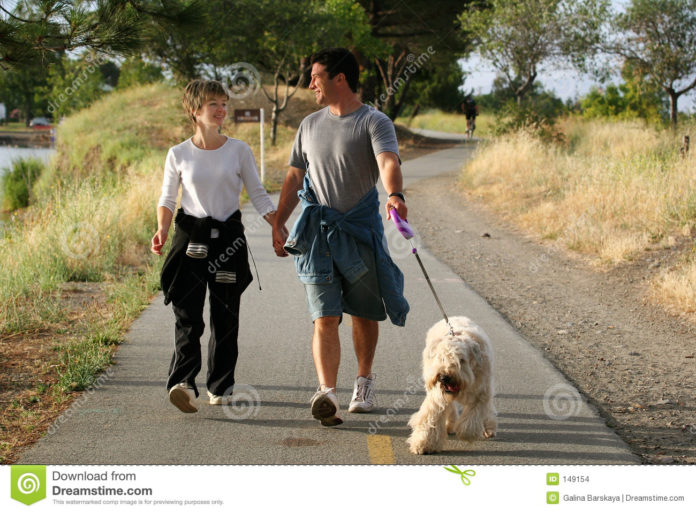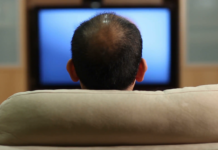Walking is the easiest way to increase your lifespan and stay healthy all of those years. As a moderate intensity exercise, brisk walking every day for at least 30 minutes will reduce weight gain and inhibit multiple diseases such as diabetes, hypertension, dementia, and cardiac issues. Taking short walks in the midst of a busy day can improve your mood, boost your creativity, and reduce stress. Keep walking for a healthy mind and healthy body.
Taking tiny steps, you learned to walk ahead in life. You did it with no training or equipment. You’ve been doing it for this long, so why walk any more than necessary? Although your body naturally adapts to changing foods and environment, it needs a boost to stay absolutely healthy. What you need is constant exercise and a walk is the best way to start.
If you can’t do intense workouts, if you’re just starting on the fitness path, or if you’re recovering from some injury, just take a walk. By walk, we don’t mean a nice casual stroll, not always at least. To keep your body fit, you need walk briskly and work your body completely. And here’s what you’ll garner by doing this every day.
Losing weight doesn’t necessarily mean having to do heavy exercises or going to the gym. Wake up early and walk briskly nonstop for at least 30 mins every day. The longer you do it and with increasing pace, the more calories you lose. Combine this with a healthy diet and you’ll soon find your clothes not really stretching as much as they used to! And with weight loss comes a super-toned body after working those muscles as best as possible.
Walking until you reach your goal and then giving up will not help you in the long term. Make walking a lifelong daily habit to stay healthy and fit.
And walking isn’t all sports shoes and parks. During the day, you can also get up from your desk every hour or so and walk around your office or block for two whole minutes. The benefits of intense exercise are undeniable, of course, but even a few steps daily can take you a long way.
Weight loss and diabetes go hand in hand as losing weight reduces the risk of diabetes and increases the effectiveness of the treatment. Walking not only helps with this but also increases insulin sensitivity, especially in obese individuals with non-insulin-dependent diabetes mellitus. It impacts the glucose levels after meals in type 1 diabetics and is also commonly used as a low-intensity workout plan to lower blood glucose in type 2 diabetes.
The longer you walk, the more you increase your lifespan and keep illnesses at bay. A regular walking routine lowers blood pressure and reduces the sympathetic nerve activity, and hence treats hypertension. Walking is a frequently followed exercise for post-menopausal women who suffer from hypertension.
Weight gain, diabetes, and blood pressure all of these increase the risk of cardiovascular diseases. Walking treats them all and thus keeps your heart strong, healthy, and disease free. Especially in elderly, those who walk less than half a mile a day are at a two fold higher risk of suffering from coronary heart disease than those who walk more than 1.5 miles a day. The duration and distance have a direct correlation to the risk of cardiac diseases.
As you age, your brain witnesses a reduction in gray matter, leading to cognitive conditions such as dementia. Illnesses like dementia reduce the quality of life not only for the patient but also for those caring for them. So before the situation worsens, get the patient to start walking. Increased physical activity increases the gray matter, treats cognitive impairments, and even improves cognitive function.
Fast-paced or high-intensity exercises will tire you quickly. So start with a manageable brisk walk, gradually increase the pace, and soon your body will stop complaining about all the extra work.
Walking is your best bet if you’re recovering from joint issues, lower back pain, or any form of injury. Brisk walking is a moderate-intensity exercise that increases heart rate and stimulates blood circulation. Your pace should be comfortable for the entire body, especially the area of pain. The walk should be a therapy for your pain area and not cause further damage. So go slow or faster accordingly.
We all need to get outside more. Many people in the UK are vitamin D deficient, affecting important things like bone health and our immune systems. Walking is the perfect way to enjoy the outdoors while getting your vitamin D fix.
When stressed, staying put indoors without any fresh air or nothing else to think about can make you more tensed. Take a stroll and focus on the things around you. Or go for a brisk walk and concentrate on your body. Distracting yourself is the best way to clear your mind and steer you away from stressors. If you can find a garden or a park, walk on the grass. This can have almost a massage-like feel and de-stress your mind.
As you get used to walking, you can even learn to meditate while walking to calm your mind. You do this by seeing things around you but not reacting and just being aware of each of your body parts and your mind.
The best way to walk is to do it in a brisk way. Brisk walking comes somewhere between walking and running, at a transitional speed. But it’s not just about the pace. Here are a few things to keep in mind:
- Control your breathing. Uneven and fast-paced breathing will tire you faster. So go slow and easy. You can even sync the breaths with your steps to keep it under control.
- Work on your posture and gait. Walk from your heel to toe, i.e., your heel should always touch the ground first. Swing your arms and do not keep them stiff by your side. Look ahead and not down. Keep your back straight. Allow your hips and waist to move freely and naturally.
- Choose the right path. Opt for smooth roads with less traffic. Take the roads that you’re used to.
- Engage your abs and keep them tight as you walk.
- Take measured strides. Keep them neither too big nor too small.
- Choose the right gear. Choose clothes and shoes that are comfortable for walking.
- Maintain a schedule. Follow the same routine every day. Walk before breakfast to burn more fat. Take a stroll after meals to enhance digestion.



























